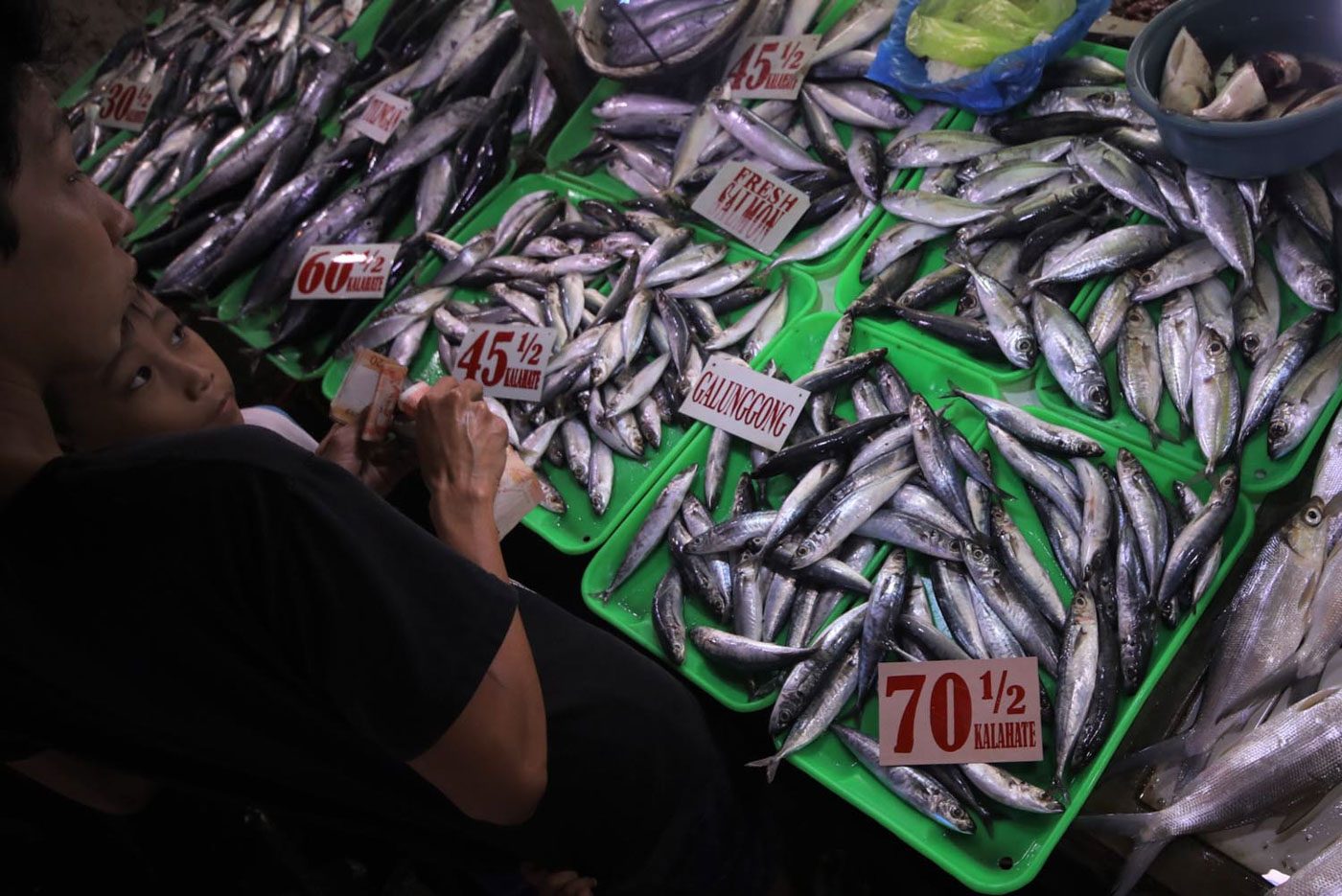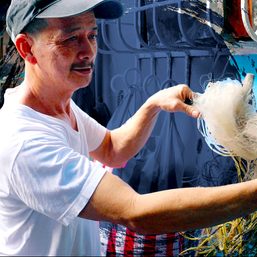SUMMARY
This is AI generated summarization, which may have errors. For context, always refer to the full article.

NUEVA ECIJA, Philippines – The Department of Agriculture (DA) has started a probe that would lead to the crackdown of importers illegally diverting tons of frozen galunggong (round scad), mackerel, and bonito into wet markets.
“We’ve identified most of them,” said Agriculture Secretary Francisco Tiu Laurel Jr. on Wednesday, April 3, in an ambush interview in the Science City of Muñoz. Tiu Laurel was a resource person in the first day of the Food Security Cluster Communications Workshop held at the Philippine Rice Research Institute.
“But of course, we have to do our audit, right? I mean, to be fair to everybody,” said Tiu Laurel. “We don’t want to harm those that are legitimate.”
The crackdown will focus on “registered importers” who, instead of supplying canning and processing factories, divert and sell the frozen fish to palengke or wet market vendors
Tiu Laurel said small players in wet markets are harmless and “are just doing their jobs.” “They just need income,” he added.
About 30,000 tons of fish imports are diverted to wet markets per quarter, according to the agriculture chief, resulting in at least 90,000 to 100,000 tons diverted in a year.
On Monday, April 1, Tiu Laurel suspended the importation of frozen galunggong, bonito, and mackerel through Memorandum No. 14. The memorandum takes effect 15 days after issuance.
These frozen fish products are intended for institutional buyers, as well as canning and processing purposes. Diverting these imported fish to the wet market is illegal.
Under Fisheries Administrative Order No. 195, series of 1999, importers who are found guilty of violating their restrictions will be “permanently disqualified from applying for subsequent importation of fish and fishery/aquatic products and shall be penalized.”
Upon arrival in Philippine ports, imported fish are subject to physical examination and microbiological analysis to determine if these are fit for human consumption.
Memorandum No. 14 instructed importers to add additional labelling for other imported fish and should read as follows: “Imported under FAO 195 for canning purposes only and not for sale or distribution to wet markets and supermarkets.”
Trade Undersecretary Ed Sunico said they plan to discuss the DA memorandum in a regular meeting with manufacturers to assess how the suspension may affect prices.
“There will be a special focus probably on this one,” Sunico told reporters on Thursday, April 4. “So we can see if there are interventions that the DTI (Department of Trade and Industry) needs to do.” – Rappler.com
*Quotes translated to English for brevity
Add a comment
How does this make you feel?






![[Rappler’s Best] The elusive big fish – and big fishers](https://www.rappler.com/tachyon/2024/04/The-elusive-big-fish-%E2%80%93-and-big-fishers.jpg?resize=257%2C257&crop=220px%2C0px%2C720px%2C720px)


There are no comments yet. Add your comment to start the conversation.